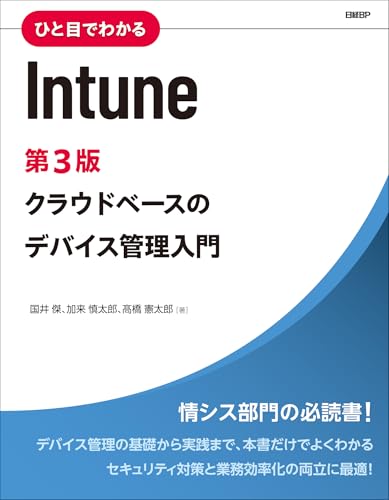【2025年】「ソフトウェア」のおすすめ 本 176選!人気ランキング
- リーダブルコード ―より良いコードを書くためのシンプルで実践的なテクニック (Theory in practice)
- 良いコード/悪いコードで学ぶ設計入門 ―保守しやすい 成長し続けるコードの書き方
- Web API: The Good Parts
- 人月の神話【新装版】
- ソフトウェアアーキテクチャの基礎 ―エンジニアリングに基づく体系的アプローチ
- オブジェクト指向でなぜつくるのか 第3版 知っておきたいOOP、設計、アジャイル開発の基礎知識
- プログラムはなぜ動くのか 第3版 知っておきたいプログラミングの基礎知識
- Webを支える技術 -HTTP、URI、HTML、そしてREST (WEB+DB PRESSプラスシリーズ)
- マスタリングTCP/IP―入門編―(第6版)
- エリック・エヴァンスのドメイン駆動設計 (IT Architects’Archive ソフトウェア開発の実践)
本書は、理解しやすいコードを書くための方法を紹介しています。具体的には、名前の付け方やコメントの書き方、制御フローや論理式の単純化、コードの再構成、テストの書き方などについて、楽しいイラストを交えて説明しています。著者はボズウェルとフォシェで、須藤功平氏による日本語版解説も収録されています。
この文章は、書籍の目次と著者情報を紹介しています。目次には、ソフトウェアエンジニアリングやシステムデザインに関する様々なテーマが列挙されており、著者は滝沢徹、牧野祐子、富澤昇の3名で、それぞれの学歴と現在の職業が記載されています。
本書は、ソフトウェアアーキテクチャの重要性と、効果的なアーキテクチャを設計・構築・維持するためのスキルや知識を現代的視点から解説しています。内容は、アーキテクチャの基礎、アーキテクトの役割、アーキテクチャスタイル、チームとのコラボレーションに必要なソフトスキルなど多岐にわたり、実践的な例を交えて説明されています。著者は経験豊富なアーキテクトたちで、読者がソフトウェアアーキテクトとして成長するための道筋を示しています。
『オブジェクト指向でなぜつくるのか』の改訂第3版は、オブジェクト指向プログラミング(OOP)の基本と最新動向をわかりやすく解説しています。著者は、OOPの全体像、プログラミング言語の歴史、アジャイル開発手法などについて触れ、特に人気のある言語(Java、Python、Ruby、JavaScript)の情報も更新されています。読者は、OOPがソフトウェア開発においてどのように役立つかを学び、実践的な知識を得ることができます。
『プログラムはなぜ動くのか』の改訂第3版は、プログラムの動作原理をわかりやすく解説し、基礎知識を身につけることを目的としています。内容は新しい製品やツールに更新され、初心者でも理解しやすいように加筆されています。特に、C言語と新たにPythonを用いた機械学習に関する章が追加されており、プログラミングの本質を探求することができます。全体を通して、プログラムの仕組みや環境について詳しく説明されています。
本書は、Webサービスの実践的な設計に焦点を当てています。HTTPやURI、HTMLの仕様を歴史や設計思想とともに解説し、Webサービスにおける設計課題やベストプラクティスを紹介しています。目次は、Web概論、URI、HTTP、ハイパーメディアフォーマット、Webサービスの設計、付録から構成されています。
本書『マスタリングTCP/IP 入門編 第6版』は、TCP/IPに関する解説書の最新版で、時代に即したトピックを追加し内容を刷新しています。豊富な図版や脚注を用いて、TCP/IPの基本をわかりやすく解説しており、ネットワークやインターネットプロトコルの理解を深めるための入門書として最適です。著者は複数の専門家で構成されています。
この文章は、エリック・エヴァンスの著書に関する目次と著者情報を紹介しています。目次は、ドメインモデルの機能、モデル駆動設計の要素、リファクタリングの深い洞察、戦略的設計の4部構成で、各部での主要なテーマが列挙されています。著者は、ビジネスとソフトウェア構築に関する専門家や技術コンサルタントであり、各自の経歴や専門分野も述べられています。
本書は、複数のプログラマが関わるプロジェクトの成功にはチームの協力が不可欠であることを強調し、著者がエンジニアとしての経験を基に「エンジニアが他人とうまくやる」ためのコツを紹介します。内容は「チーム文化の作り方」や「有害な人への対処法」など多岐にわたり、楽しい逸話を交えつつエンジニアの社会性を解説しています。
本書は競技プログラミング(競プロ)に必要なアルゴリズムやデータ構造、考察テクニックを詳しく解説し、150問以上の演習問題を通じて知識を定着させることを目的としています。77個のテクニックを網羅し、320点以上の図で理解を助ける内容で、全問題は自動採点システムに対応しています。著者は国際情報オリンピックで金メダルを三度獲得した実績を持つ米田優峻氏です。
『これからはじめるプログラミング 基礎の基礎』の改訂第3版は、プログラミング入門者向けに書かれた定評ある書籍です。内容は現代の読者に合わせて見直され、プログラミング環境や言語もアップデートされています。目指すゴールは旧版と同じで、プログラミングの基本知識や実践的なステップを学ぶことができます。この本は、プログラミングを始める人にとっての「最初に読むべき入門書」とされています。
この文章は、著者やテーマに関する情報を提供しています。主に、人材の活用、生産性向上、チーム育成に関する内容が含まれています。著者は、コンサルタント会社アトランティック・システムズ・ギルド社の共同経営者であるトム・デマルコとティモシー・リスター、さらに日本のコンサルタント松原友夫、山浦恒央、長尾高弘の経歴が紹介されています。彼らは、システム構築やプロジェクト管理において人間的な側面を重視し、国際的に活動しています。
本書『アジャイルサムライ』は、ソフトウェア開発におけるアジャイル手法を紹介しており、顧客に価値を提供するプロフェッショナルとしてのアプローチを解説しています。内容はアジャイルの基本、方向づけ、計画、プロジェクト運営、プログラミングに関する各部に分かれており、著者は実務経験豊かなアジャイルコーチたちです。
著者アンドレアス・ツェラーは、プログラムのデバッグに関する効率的な方法を提案する本書で、系統的かつ自動的なデバッグの重要性を説いています。具体的なテクニックやツールを紹介し、デバッグ作業の効率化と苦痛の軽減を目指しています。目次には、障害の発生、問題管理、再現、単純化、欠陥修正などが含まれています。著者はコンピュータサイエンスの教授であり、多くのプログラマにとって有益な一冊です。
本書『新人エンジニア向け教科書』第3版は、システム開発の基礎知識をゼロから解説する入門書です。新人エンジニアや学生を対象に、ウォータフォール型とアジャイル型の開発手法の特徴や違いを学べる内容となっており、アジャイル型開発の解説が大幅に加筆されています。また、開発過程での文書作成手順や演習課題も用意されており、現役エンジニアや研修担当者にも役立つ一冊です。
この書籍は、WebブラウザがURLを入力してからWebページが表示されるまでのプロセスを探る内容で、ネットワーク技術に関する基礎解説が大幅に加筆された改訂版です。目次にはブラウザ内部のメッセージ作成、TCP/IPプロトコル、LAN機器(ハブ、スイッチ、ルーター)、アクセス回線とプロバイダ、サーバー側のLAN、Webサーバーへの到達と応答データの戻りなどが含まれています。著者はネットワーク業界での経験を持つ戸根勤氏です。
本書は、2007年に刊行されたソフトウェアテストに関する書籍の改訂版で、マインドマップを活用してテストの各フェーズを効率的に進める方法を実例と共に紹介しています。初心者でもスムーズにテスト計画から実装までの工程に取り組めるように設計されており、テスト設計のクリエイティブなアプローチを促進します。著者はソフトウェアテスト技術の普及に尽力している専門家です。
この書籍は、Googleのソフトウェアエンジニアたちが超大規模ソフトウェアの開発と保守におけるベストプラクティスを、文化、プロセス、ツールの観点からまとめています。時間、変化、規模、成長、トレードオフ、コストという基本原理に基づき、持続可能なコードの方法論を解説。心理的安全性やダイバーシティなどの文化、コードレビューやテストのプロセス、継続的インテグレーションなどの自動化ツールについても触れています。経済学や心理学の視点を取り入れ、データ駆動の定量的・定性的な意思決定プロセスを説明しており、幅広い読者に役立つ知見を提供しています。
本書『達人プログラマー 20周年記念版』は、ソフトウェア開発者向けに、効率的で生産的なプログラマーになるための実践的アプローチを提供します。著者はアジャイルソフトウェア開発の先駆者であるAndrew HuntとDavid Thomasで、経験を積みながらソフトウェア開発の理解を深める方法を解説しています。初心者からベテランまで幅広い読者に役立つ内容で、20年間の集大成として位置付けられています。
この書籍は、Webアプリ開発者向けに脆弱性の原因と対処法を解説したベストセラーの改訂版です。最新のOWASP Top 10 - 2017に対応し、HTML5やJavaScriptに関する新たな解説を追加しています。脆弱性診断の入門章も設けられ、実習環境はWindowsとMac両方に対応しています。著者はWebアプリケーションのセキュリティに関する専門家で、脆弱性診断やコンサルティングを行っています。
この書籍では、プロジェクト・マネジメントにおける人間行動の特性を考慮し、制約条件の理論(TOC)を応用したクリティカルチェーンの手法を提案しています。著者のゴールドラット博士は、パフォーマンスを大幅に改善するための新しいツールとソリューションを提示し、ビジネス小説としての形式を取っています。著者の背景には、TOCの創始者であるゴールドラット博士や、ビジネス教育に関わる三本木亮、プロジェクト管理の専門家である津曲公二がいます。
本書はテスト駆動開発(TDD)の実践方法を解説した日本語版で、原著者Kent Beckによる内容を和田卓人が翻訳しています。TDDは単なるテスト自動化ではなく、ユニットテストとリファクタリングを組み合わせた手法で、設計の進化を促進します。書籍は多国通貨オブジェクトやxUnitの例題を通じてTDDの原理とパターンを学ぶ構成になっています。
本書は、ソフトウェア開発者が「より良い人生」を送るためのノウハウやスキルを網羅した改訂版のバイブルです。技術習得やキャリア構築に加え、対人スキルや自己管理についても具体的に解説しています。著者は自身の成功体験を通じて、技術以外の重要性や主体的な行動の重要性を強調。コロナ禍を経て自助の重要性が再認識された今、読者にとって必読の内容となっています。
学生の時に読んでよく分からなかったが社会人になって読んでめちゃくちゃ腹落ちした書籍。何度も何度も読み返すことで多くを学べる。社会人で日々の仕事に忙殺されて大変な人には是非読んで欲しい書籍。
この文章は、書籍の目次と著者情報を紹介しています。書籍は三部構成で、第一部ではアルゴリズムやプログラムの構造について、第二部ではパフォーマンスやアルゴリズムデザインのテクニックについて、第三部では具体的な問題解決の作品を扱っています。著者の小林健一郎は東京大学で物理学を学び、情報科学を専門とする教授です。
本書では、統計学があらゆる学問の中で最強である理由を解説し、現代社会におけるその重要性や影響力を最新の事例を通じて探求しています。著者は、統計学の基本概念や手法(サンプリング、誤差、因果関係、ランダム化など)を紹介し、統計学の魅力とパワフルさを伝えます。著者は東京大学出身の専門家で、データを活用した社会イノベーションに取り組んでいます。
学生の時にこの書籍を読んで統計学に興味を持った。統計学の魅力について分かりやすく学べる書籍。専門的な内容はそれほどないのでスラスラ読める。統計学ってどんなことができるの?なんでそんなにすごいの?ということを知りたい人がまず最初に読むべき本。
この書籍は、JavaScriptを初めて学ぶ人や過去に挫折した人向けに、実践的なサンプルを通じて基礎力を身につけることを目的としています。楽しいサンプルを提供し、初学者がつまずくポイントを丁寧に解説することで、挫折を防ぐ内容になっています。第2版では新しいECMA Scriptの機能を取り入れ、情報を最新のものにアップデートしています。特にWeb業界に興味がある人やフロントエンドエンジニアを目指す人におすすめです。著者はUIデザイナーであり、実務経験を活かした内容が特徴です。
本書は、プログラムの洗練に必要な判断を学ぶためのケーススタディを提供しています。内容はクリーンコード、意味のある名前、関数、コメント、書式化、オブジェクトとデータ構造、エラー処理、境界、単体テスト、クラス、システム、創発、同時並行性、継続的改良、JUnitの内部、リファクタリング、経験則など多岐にわたります。プログラミングは動作するだけでは完結せず、質の向上が重要であることを強調しています。
本書は、UIデザインの基本から具体的な実践方法までを体系的に解説しています。デザインの目的や物理的・ソフトウェアの制約、人間の認知特性を考慮し、「わかりやすさ」と「使いやすさ」を追求する方法を示します。デザイナーやエンジニアなど、UI制作に関わるすべての人に役立つ内容です。また、2013年の『UIデザインの教科書』を基に最新の情報に更新されています。
「シス管系女子」は、Linuxのコマンド操作を漫画で楽しく学べる書籍で、5万部を突破した人気シリーズの新エピソードを含んでいます。主人公の新人社員利奈と先輩社員大野のやり取りを通じて、シェルスクリプトやサーバー管理の基本が分かりやすく解説されており、実際の仕事で役立つ情報が満載です。各エピソードでは、リモート操作やファイル管理、コマンドの復帰など、具体的な操作方法が紹介されています。
この書籍は、自動テストの初心者向けに基礎と手順を解説しています。自動テストの種類や具体例、必要なプログラミング知識、テスト駆動開発やモックの活用法などを豊富なイラストとサンプルを用いて説明。特にWebシステムの自動テストに焦点を当て、テストのピラミッドやユーザーインターフェイステスト、RESTfulなWebサービスのテスト方法についても詳述しています。自動テストをマスターしたいエンジニアにとって必携の一冊です。著者は経験豊富なプログラマーとテストエンジニアです。
本書は、世界中のプログラマによる97本のエッセイを収録し、プログラミングの重要な要素や技術、学び方についての経験を共有しています。著者たちは、コーディングやテスト、設計原則についての洞察を提供し、プログラマに勇気と新たな気づきをもたらします。日本語版には、著名なプログラマによる10本の書き下ろしも含まれています。
この本は、プロジェクトマネジメントの入門書であり、PMBOK第5版に基づいています。世界中の専門家に推薦され、アマゾンの「オールタイムベストビジネス書100」にも選ばれています。内容は、プロジェクトの威力や定義、計画、実行、監視・コントロール、終結の各フェーズについて詳しく解説しています。
コレ一冊読めばWeb技術の基本が分かる!新しいテクノロジーが登場しても基本となるWebの技術は非常に大事だし活きる!IT系の仕事に付く人はまずこの書籍を読んで基本を固めるべし!
この書籍は、AWS(Amazon Web Services)に関する新しい入門書で、必要な知識を最短で身につけることを目的としています。多くの情報が溢れる中で、AWSエンジニアとして重要な情報を厳選し、基本的な考え方や構成、セキュリティなどを解説しています。著者はクラスメソッドのエンジニアたちで、実践的な知識を提供しています。AWSの全体像から具体的な構築方法、安全な利用法まで、幅広い内容がカバーされています。AWS初学者にとって必携の一冊です。
本書は、ソフトウェアアーキテクチャの普遍的なルールについて解説しています。プログラムの構成要素の組み立て方に焦点を当て、プログラミングパラダイム、設計原則、コンポーネントの原則、アーキテクチャの詳細を紹介しています。目次にはイントロダクションから付録までの各部が含まれています。
ソフトウェアを起点にビジネスを考えなくてはいけない現代に重要なソフトウェアファーストの考え方をインストールできる書籍。DXが遅れている企業ではどうしても業務フローに合わせた非効率なソフトウェア開発が進んでいる。それよりも現代は既存のソフトウェアに業務フローをなるべく合わせて改善していくべき!
本書は、システムに詳しくない業務担当者向けに、企業のDX推進に必要なノウハウを解説した教科書です。システムを自ら作れなくても、他者に作ってもらうための技術や判断力が求められる時代において、具体的なプロセスや注意点を示します。内容は、システム構築の計画から実施までの各ステップを網羅しており、著者の実践的な経験に基づく事例も紹介されています。
本書は、プログラマー向けのソフトウェアアーキテクティング入門書で、ソフトウェアアーキテクチャの基礎やデザイン思考を解説しています。読者は、ステークホルダーのニーズ理解、技術選定、アーキテクチャ評価、チームのアーキテクト力向上などを学ぶことができます。実践的な設計手法を38のアクティビティとして紹介しており、より良いプログラマーや技術リーダーになるための必携の一冊です。
プロダクトマネジメントの考え方と行動について解説!プロダクトマネジメントは理論的には人々に愛されるプロダクトを作ることであり、ビジネスゴールとユーザニーズを計測することとされていますが、実際は、問題に直面しているプロダクトを改良するための粘り強い取り組みであり、ビジネスの「ゴール」が何かを明らかにするために執拗に働きかけることです。プロダクトマネジメントにおけるあいまいさや矛盾、不本意な妥協を紹介し、プロダクトマネージャーに必要な考え方と日々の行動、過ごし方を解説します。
『プリンシプル オブ プログラミング』は、プログラマーが3年目までに身につけるべき101の原理原則を紹介するガイドブックです。KISSやブルックスの法則など、古今東西の知恵を集約し、質の高いプログラミングを実現するための基本的な考え方や手法をわかりやすく解説しています。初心者から脱却したいプログラマーに最適な一冊です。著者は上田勲で、キヤノンITソリューションズでの豊富な経験を持っています。
この入門書は、Webアプリケーション開発の基礎を学ぶためのもので、通信技術とソフトウェア開発技術の両方からWebシステムの仕組みを詳しく解説しています。内容は、Webアプリケーションの定義、発展の歴史、HTTPの理解、CGIからの進化、構成要素、効率的な開発手法、セキュリティ対策などが含まれています。著者はウルシステムズのシニアコンサルタントで、オープンソースソフトウェア開発にも関与しています。
この入門書は、初学者や非プログラマー向けにプログラムの動作原理を「実習」と「講義」を通じて解説しています。内容はプログラミングの基本、コンピュータやOSの役割、プログラミング言語の基礎、JavaScriptやC言語の学習、オブジェクト指向モデリングなど多岐にわたります。著者は河村進氏で、実業界や研究機関での豊富な開発経験を持つ専門家です。
本書『JavaScript』は、最も広く使用されているプログラミング言語であるJavaScriptを包括的に解説したもので、第6版から大幅に加筆・更新されています。基本的な構文や機能、標準ライブラリ、クライアントサイドおよびサーバサイドのJavaScriptについて詳しく説明し、非同期プログラミングやクラスの定義方法、モジュールの使い方なども紹介しています。開発者にとって必携の一冊です。著者はJavaScriptの専門家であり、プログラミングの基礎から応用まで幅広くカバーしています。
本書は、RESTというWebアーキテクチャスタイルについて詳しく解説した初の本格的な書籍です。RESTfulアーキテクチャの概念や特徴、リソース指向アーキテクチャの基本ルールを説明し、実際のRESTfulサービスの例を挙げながら設計方法を紹介しています。また、RESTの制約を満たしていないサービスの再設計方法も取り上げています。著者はリチャードソン、ルビー、山本陽平の3名で、それぞれの経歴も紹介されています。
「テストの教科書」は、初学者向けにソフトウェアテストの基礎から体系的に学べる内容の書籍です。丁寧な解説と平易な文章で、テストの基本的な考え方や5つのテスト技法を用いた欠陥の検出方法を紹介しています。目次には、ソフトウェアテストの基礎、さまざまなテスト技法、テストドキュメントとモニタリングが含まれています。著者は、ソフトウェアテストの専門家である石原一宏氏と田中英和氏です。
この書籍は、プログラミング言語の文法や設計の背景を理解し、効率的に言語を学ぶ方法を探求しています。目次には、言語の基本概念、処理の流れ、関数、エラー処理、スコープ、型、並行処理、オブジェクト指向などが含まれています。著者は西尾泰和で、博士号を持ち、プログラミング言語の教育にも関わっています。
先を制してライバル企業に勝つためのポイントとは?決算を早期化して利益を稼ぎだすには?業務改革で会社をよみがえらせるには?最高のシステムをつくるための「亀のコウラ」とは?ベンチャーから中堅企業まで50社以上、業務設計・改善から会計監査さらにIPO支援まで20年近いコンサルティング実績を誇る「公認会計士兼システムコンサルタント」という異色の著者だからこそ書ける成功のノウハウが満載! 第1章 「稼げるシステム」と「稼げないシステム」の分かれ道はどこにあるのか? 第2章 先を制してライバル企業に勝つ"経営の視点" 第3章 決算を早期化して利益を稼ぎ出す"会計の視点" 第4章 業務改革で会社をよみがえらせる"業務の視点" 第5章 正しい知識で最高のシステムをつくる"システムの視点" 第6章 プロジェクトを成功に導き、会社を飛躍させよう
本書は、初・中級のテスト技術者向けに、テスト設計と実施のノウハウを実践的に学ぶためのガイドです。テスト技法は開発フェーズや目的に応じて適切に選ぶ必要があり、知識だけでなく経験も重要です。内容は、点・線・面・立体という視点からテスト技法を解説し、演習問題を通じて実践的なスキルを身につけることができます。また、JSTQBのAdvanced Level試験に役立つ内容が含まれており、改訂版では新しい技法や演習問題が追加されています。著者はソフトウェアテストの専門家であり、業界での経験を活かした内容となっています。
本書は、プロジェクトマネジメント(PM)の重要性を解説し、目標設定、計画、実行・修正の3つの視点から具体的な知識とツールを豊富な図を用いてわかりやすく紹介しています。企業や組織が求めるPMスキルを習得するための内容で、ISO21500に準拠しています。著者は、プロジェクトソリューションズの代表であり、大学でPMの講師も務めています。
この書籍は、初学者向けにソフトウェアテストを体系的に学ぶための入門書です。内容は、ソフトウェアテストの基本、テスト技法、テストドキュメントの作成、アジャイル開発とテスト自動化などを丁寧に解説しています。著者はバルテス株式会社の専門家で、テスト設計や教育に関する豊富な経験を持っています。
本書は、高橋寿一氏による「開発者テスト」の実践ガイドで、ウォーターフォールやアジャイル開発における上流品質の向上を目指します。開発者が行うべきテスト手法(単体テスト、リファクタリング、テストの自動化など)を実例を交えて解説し、アジャイル開発に特化した内容も強化されています。著者の豊富な経験を基に、現場で必要な手法と学術的な根拠を提供する一冊です。
本書は、IT業界での技術系マネージャーを目指すエンジニアに向けて、マネジメントに必要なスキルやキャリアパスを解説しています。著者のカミール・フルニエは、テックリードからCTOに至る自身の経験を基に、メンタリング、プロジェクト管理、チーム管理、経営幹部の役割など、各ステージで求められる役割や考え方を具体的に紹介します。技術力の維持やチームの立て直しなど、管理職に伴うさまざまな課題への対処法も提案されており、マネジメントキャリアを志すエンジニアにとって必携の一冊です。
本書は、JSTQBのFoundation Level試験の受験者や、ソフトウェアテストの知識を学びたい人向けの学習書です。テストに関する用語や技術を、演習を通じて学ぶことができ、テスト技術者だけでなく、プロジェクトマネージャやプログラマなども対象としています。内容はテストの基礎からテストマネジメント、支援ツールまで幅広くカバーしており、練習問題も含まれています。著者はプロセスコンサルタントの正木威寛氏です。
本書は、新人や経験の浅いテストエンジニアが実務で「ソフトウェアテスト技法」を効果的に活用するための実践的な問題集です。各章では、同値分割法、境界値分析、デシジョンテーブル、状態遷移テスト、組合せテストをテーマにした具体的なシチュエーションが取り上げられ、テスト技法の理解を深めることを目的としています。企業の新人研修や個々のスキルアップにも利用可能です。
本書は、システム開発における設計の基本知識を解説した14年ぶりのリニューアル版です。エンジニアが「はじめての設計」に挑戦する際の課題(アプリケーション設計、データベース設計、画面設計、外部システム接続、アーキテクチャ設計)を事例を交えて紹介し、実践的なノウハウを提供します。また、アジャイルやマイクロサービスに関する新しい情報も追加されています。若手エンジニアのステップアップやリーダーシップ向上を目指す一冊です。
この文章は、見積りに関する書籍の目次と著者情報を紹介しています。書籍は三部構成で、第一部では見積りの基本概念や重要性、第二部では見積り技法の基礎、第三部では見積りに関する具体的な課題を扱っています。著者スティーブ・マコネルはソフトウェアエンジニアリングの専門家で、他の著者たちも技術者や翻訳者としての経験があります。
主人公アレックス・ロゴは、工場閉鎖の危機に直面し、恩師ジョナとの再会をきっかけに工場の再建に取り組む。彼は生産現場の常識を覆すジョナの助言を受け、仲間と共に努力するが、家庭を犠牲にしてしまい、妻ジュリーとの関係が危機に陥る。物語は、仕事と家庭の両立を巡る葛藤を描いている。
この本は、人工知能の巨人であるジューディア・パールが「なぜ?」の科学を探求する革命的な入門書です。従来の統計学では答えられない因果関係を「因果のはしご」を通じて説明し、因果推論の重要性を強調しています。著者はチューリング賞受賞者であり、ビッグデータやAIの未来にも触れています。データ分析や意思決定に関わるビジネスパーソンにとって必読の一冊です。
この書籍は、累計10万部のベストセラーを改訂したもので、Webサイト制作とHTML・CSSの基本を学ぶ入門書です。架空のカフェ「KUZIRA CAFE」のサイトを作成しながら、最新のHTMLとCSSの技術を身につけることができます。PCとモバイル対応のサイト制作手順を図解で詳しく解説しており、初心者や再学習者に最適です。著者はUIデザイナーの狩野祐東です。
「はじめて「スクラム」をやることになったら読む本」は、スクラムを実践するための手引きとして増補改訂されました。スクラムの基本概念やルールをわかりやすく解説し、架空の開発現場を題材に実践的なプラクティスを紹介しています。2017年版のスクラムガイドに対応し、最近の開発現場に向けた内容に更新されています。これからスクラムを始める人や導入に苦労している人に適した一冊です。
本書は、レガシーコードの問題を解決するための9つのプラクティスを紹介し、初めから質の高いコードを作る方法を解説しています。レガシーコードはバグが多く、管理が難しいため、事前に適切な開発手法を取り入れることが重要です。具体的には、目的を明確にし、開発を小さなバッチで進めること、継続的な統合、チームの協力などが提案されています。信頼性と拡張性の高いソフトウェアを目指す開発者やマネージャにとって必携の一冊です。
本書『プログラマー脳』は、著者が認知科学に基づいてプログラミングの効率的な学習方法を解説しています。プログラミング時の認知プロセスを理解し、コードの速読や新しい言語の習得、問題解決技術など、具体的なテクニックを紹介しています。全13章から構成され、特に職業プログラマー向けにチーム開発やオンボーディングプロセスについても触れています。著者はプログラミング教育の専門家であり、初心者向けのプログラミング言語「Hedy」を開発しています。
Winner of the 2011 Jolt Excellence Award! Getting software released to users is often a painful, risky, and time-consuming process. This groundbreaking new book sets out the principles and technical practices that enable rapid, incremental delivery of high quality, valuable new functionality to users. Through automation of the build, deployment, and testing process, and improved collaboration between developers, testers, and operations, delivery teams can get changes released in a matter of hours- sometimes even minutes-no matter what the size of a project or the complexity of its code base. Jez Humble and David Farley begin by presenting the foundations of a rapid, reliable, low-risk delivery process. Next, they introduce the "deployment pipeline," an automated process for managing all changes, from check-in to release. Finally, they discuss the "ecosystem" needed to support continuous delivery, from infrastructure, data and configuration management to governance. The authors introduce state-of-the-art techniques, including automated infrastructure management and data migration, and the use of virtualization. For each, they review key issues, identify best practices, and demonstrate how to mitigate risks. Coverage includes * Automating all facets of building, integrating, testing, and deploying software * Implementing deployment pipelines at team and organizational levels * Improving collaboration between developers, testers, and operations * Developing features incrementally on large and distributed teams * Implementing an effective configuration management strategy * Automating acceptance testing, from analysis to implementation * Testing capacity and other non-functional requirements * Implementing continuous deployment and zero-downtime releases * Managing infrastructure, data, components and dependencies * Navigating risk management, compliance, and auditing Whether you're a developer, systems administrator, tester, or manager, this book will help your organization move from idea to release faster than ever-so you can deliver value to your business rapidly and reliably. Foreword by Martin Fowler Preface Acknowledgements About the Authors Part I Foundations 1 The Problem of Delivering Software 2 Configuration Management 3 Continuous Integration 4 Implementing a Testing Strategy Part II The Deployment Pipeline 5 Anatomy of the Deployment Pipeline 6 Build and deployment scripting 7 Commit Testing Stage 8 Automated Acceptance Testing 9 Testing Non-Functional Requirements 10 Deploying and Releasing Applications Part III The Delivery Ecosystem 11 Managing infrastructure and environments 12 Managing Data 13 Managing components and dependencies 14 Advanced version control 15 Managing Continuous Delivery Bibliography Index
この書籍は、良いコードを迅速に生み出すための共同開発の手法を実践的に学べる内容です。目次には、GitやGitHubの導入、操作方法、Pull Requestの使い方、連携ツール、開発フローなどが含まれています。著者の大塚弘記はアジャイル開発の専門家で、企業におけるWebアプリケーション開発の指導を行っています。
Peter Seibel interviews 15 of the most interesting computer programmers alive today in Coders at Work, offering a companion volume to Apress's highly acclaimed best-seller Founders at Work by Jessica Livingston. As the words "at work" suggest, Peter Seibel focuses on how his interviewees tackle the day-to-day work of programming, while revealing much more, like how they became great programmers, how they recognize programming talent in others, and what kinds of problems they find most interesting. Hundreds of people have suggested names of programmers to interview on the Coders at Work web site: www.codersatwork.com. The complete list was 284 names. Having digested everyone's feedback, we selected 15 folks who've been kind enough to agree to be interviewed: * Frances Allen: Pioneer in optimizing compilers, first woman to win the Turing Award (2006) and first female IBM fellow * Joe Armstrong: Inventor of Erlang * Joshua Bloch: Author of the Java collections framework, now at Google * Bernie Cosell: One of the main software guys behind the original ARPANET IMPs and a master debugger * Douglas Crockford: JSON founder, JavaScript architect at Yahoo! * L. Peter Deutsch: Author of Ghostscript, implementer of Smalltalk-80 at Xerox PARC and Lisp 1.5 on PDP-1 * Brendan Eich: Inventor of JavaScript, CTO of the Mozilla Corporation * Brad Fitzpatrick: Writer of LiveJournal, OpenID, memcached, and Perlbal * Dan Ingalls: Smalltalk implementor and designer * Simon Peyton Jones: Coinventor of Haskell and lead designer of Glasgow Haskell Compiler * Donald Knuth: Author of The Art of Computer Programming and creator of TeX * Peter Norvig: Director of Research at Google and author of the standard text on AI * Guy Steele: Coinventor of Scheme and part of the Common Lisp Gang of Five, currently working on Fortress * Ken Thompson: Inventor of UNIX * Jamie Zawinski: Author of XEmacs and early Netscape/Mozilla hacker What you'll learnHow the best programmers in the world do their jobs! Who this book is for Programmers interested in the point of view of leaders in the field. Programmers looking for approaches that work for some of these outstanding programmers. Table of Contents * Jamie Zawinski * Brad Fitzpatrick * Douglas Crockford * Brendan Eich * Joshua Bloch * Joe Armstrong * Simon Peyton Jones * Peter Norvig * Guy Steele * Dan Ingalls * L Peter Deutsch * Ken Thompson * Fran Allen * Bernie Cosell * Donald Knuth
著者ポール・グレアムは、成功したソフトウェアベンチャーの背景や、ものづくりのセンス、ビジネスの成功の秘訣を語ります。彼は、ハッカーとクリエイターの共通点や、革新的なアイデアの重要性を強調し、プログラミング言語やデザインの未来についても考察しています。全体を通じて、常識を超えた発想や行動が成功に繋がることを示唆しています。
現在成功している大人で、中学高校でnerd(日本語では「陰キャ」?)じゃなかったと言い切れる人は滅多にいない。実際に私が出会った優秀な方は昔は陰キャだったように思います。今陰キャだからといって、これからも暗い未来が待っているわけではありません。陰キャのときこそ、本質的なやるべきことをやり、それでいてただ耐えるたけでなく自ら行動することで未来を素晴らしいものにできることを教えてくれます。
本書は、なぜ多くの成功者がプログラミングの基本を学んでいるのか、その理由と効率的な学習方法を紹介しています。著名人たちも支持する「世界最良の学習メソッド」を用いて、小学生から大人まで誰でも楽しめる内容です。プログラミングの基礎知識は将来的に役立つスキルであり、初心者向けの学習サービスやプログラミング言語の選び方も解説しています。プログラミングを効率よく学びたい人や教育に興味がある人におすすめの一冊です。
この文章は、Chad Fowlerによる書籍の目次と著者情報を紹介しています。目次は市場の選択、製品への投資、実行、マーケティング、研鑽の重要性についての章で構成されています。著者は著名なソフトウェア開発者であり、Ruby言語の専門家として知られています。彼は多くの企業での経験を持ち、ソフトウェア関連の書籍も執筆しています。
『達人に学ぶSQL徹底指南書』の第2版は、SQLを扱うエンジニア必携の書で、10年ぶりの改訂を経て、最新のSQL機能や実践的なコーディング事例を多数紹介しています。ウィンドウ関数やCASE式、外部結合などの重要なトピックを詳しく解説し、標準SQLに基づいて多様なデータベースに対応しています。また、リレーショナルデータベースの歴史や原理についても触れています。SQLを深く理解したいエンジニアやプログラマにおすすめの一冊です。
本書は、SpotifyやNetflix、Google、Amazonの成功事例から学び、チームとアーキテクチャーの進化を同時に実現する実践モデルを提案しています。真のパフォーマンスを引き出すためには、チームタイプとインタラクションモードが重要であると強調しています。目次では、チームの役割や構造、インタラクションの進化について詳しく解説されており、著者はアジャイルコーチとしての豊富な経験を持つ専門家たちです。
本書は「心理的安全性」を取り入れるための具体的な言葉の使い方を提案しています。言葉を変えることで、会話が増え、チームが変わり、チャレンジが生まれることを目指しています。各章では、チームの土壌を作る言葉や会議を活性化させる言葉、1on1を楽しむための言葉などが紹介されています。著者は心理的安全性を重視した組織づくりの専門家であり、実践的なアプローチを提供しています。
本書は、サーバやインフラの運用・管理に必要な技術や知識を基礎から解説した教科書です。ネットワークやサーバの基本知識に加え、クラウド関連の知識やエンジニアとしての考え方、学習法、スキルアップ、業務知識、職業倫理も取り上げています。これからサーバ/インフラエンジニアを目指す人に適した内容となっています。目次には、エンジニアとしての生き方、ネットワーク、インターネット、サーバ、仮想化、ミドルウェア、Webサービス運用、セキュリティ、クラウド、法律・ライセンスの基礎知識が含まれています。著者は馬場俊彰氏で、豊富な実務経験を持つエンジニアです。
本書は、長寿社会における新しい生き方や働き方を探る指南書です。著者は、教育、仕事、引退の従来のモデルが崩れつつある中で、個人がどのように戦略的に人生を設計すべきかを提案しています。重要なポイントとして、健康で長い人生を楽しむためには、見えない資産(スキルや人間関係など)の重要性や、柔軟な働き方、選択肢の多様化が挙げられます。また、結婚や労働市場の変化についても触れ、個人のアイデンティティや役割の調整が必要であることを強調しています。全体として、100歳時代を迎えるにあたっての新しいライフスタイルの指針が示されています。
今では色んなところで引用される人生100年時代というパスワードのきっかけになった書籍。もう既に1つの会社に勤め上げるような旧来の生き方は崩壊している。将来に不安を抱いているビジネスパーソンはこの本を読んで時代の変化に置いていかれないような生き方を選択して欲しい。
著者ちきりんが、個人の思考力を高めるための方法を紹介する本。内容は、決定プロセスの重要性や、疑問を持つことの意義、情報のフィルターの重要性など多岐にわたる。著者は自身の経験を基に、思考を整理する方法やデータの活用法を提案し、読者が自分なりの答えを見つける手助けをする。
本書は、Pythonプログラミングにおいて「きれいなコード」(Clean Code)を書くためのツールやテクニックを学ぶためのガイドです。基本的な環境設定やエラー処理から始まり、コードの整形、命名法、オブジェクト指向設計、パフォーマンス測定などを詳細に解説します。後半では、コマンドラインゲームを作成し、実践的なプログラミングスキルを磨くことができます。著者はソフトウェア開発者のアル・スウェイガートとフリーランスのプログラマー岡田佑一です。
お金の力を正しく知って、思い通りの人生を手に入れよう。変化の時代のサバイバルツールとして世界中で読まれるベスト&ロングセラー オリエンタルラジオ 中田敦彦さん「YouTube大学」で紹介、大絶賛! □最初に読むべき「お金」の基本図書 毎年多くの「お金」に関する本が出版され,書店に並び、そして消えていきます。 そんな状況の中で、「金持ち父さんシリーズ」は刊行から20年経った今でも変わらず多くの支持を得ています。 その第1作目である『金持ち父さん 貧乏父さん』は、時代が変わっても古びない原理原則を示す「お金」の基本図書。 「目からウロコの連続でした! 」という声が絶えず寄せられ、これまで数多の人々の「お金観」を変えてきました。 日本やアメリカのみならず、本書が刊行された2013年時点で51ヶ国語に翻訳され、109ヶ国で読まれています。 教えの書―金持ち父さんの六つの教え 金持ちはお金のためには働かない お金の流れの読み方を学ぶ 自分のビジネスを持つ 会社を作って節税する 金持ちはお金を作り出す お金のためでなく学ぶために働く 実践の書 まず五つの障害を乗り越えよう スタートを切るための十のステップ 具体的な行動を始めるためのヒント
物語形式で、わかりやすくお金への知識が書いてありました。お金に関する本では、お金の使い方がずさんな人に対して攻撃的や嫌味な表現も見られますが、この本はそういったものがなく、気持ちよく読了できました。お金に関する入門書としてぜひ読んでほしいです。
『改訂版 金持ち父さん 貧乏父さん』は、金銭教育の重要性と資産形成の基本をわかりやすく教えてくれる一冊です。著者が実際に経験した「金持ち父さん」と「貧乏父さん」の対比を通じて、働いて稼ぐだけでなく、投資やビジネスを通じた資産の増やし方を学べます。学校では教わらないお金に関する知識を、誰にでも理解しやすいエピソード形式で展開しており、特に経済的自立を目指す人にとって有益です。
著者は、手本や解答がない現代において成功するための思考法を示し、戦略的思考の重要性を解説しています。内容は、戦略的思考の基礎や企業への応用、阻害要因、グループ形成、さらに戦略的経営計画の実践について詳細に述べています。
この書籍は、システム保守における複雑なコードの分析手法や対処方法を解説しています。具体的には、コードの理解、テスト、リファクタリング、機能追加のためのテクニックを紹介。内容は、ソフトウェアの変更メカニズムや、変更作業における課題、依存関係の排除手法に分かれています。著者は、テスト駆動開発やオブジェクト指向設計に関する専門家たちです。
本書は、並行プログラミングの理論と実装をRust、アセンブリ、Cを用いて解説し、処理速度向上のための知識や技術を提供します。内容にはCPUのアトミック命令、グリーンスレッド、アクターモデル、async/awaitなどが含まれ、AArch64とx86-64アーキテクチャについての付録もあります。GitHub上のソースコードを通じて実践的な理解を深めることができます。著者は大阪大学の特任准教授、高野祐輝氏です。
本書は、メタバースの可能性や影響を探るルポルタージュで、特にソーシャルVRに焦点を当てています。著者は仮想現実の住人として、メタバースが人間の文化やアイデンティティ、コミュニケーション、経済に与える影響を考察します。前半ではソーシャルVRサービスや関連技術を解説し、後半ではユーザーの経験や調査結果を基に、メタバースがもたらす変化を論じます。メタバースは新たな人間社会の形成を促進し、物理的制約から解放される可能性を示唆しています。
この書籍は、人気のオンライン講座を基にしたPythonプログラミングの学習書で、基礎から応用までを網羅しています。著者はシリコンバレーで活躍するエンジニアで、海外でも通用するプログラミング技術を伝授。独学をサポートする無料サンプルコードやエンジニアのキャリア戦略も紹介されており、実践的な内容が充実しています。12万人以上が受講した講座を元にしたこの一冊は、海外での活躍を目指す人にとっての道しるべとなるでしょう。
本書『リファクタリング』第2版は、ソフトウェアの内部構造を改善するためのガイドブックです。リファクタリングの概念や重要性、改善ポイントを実例を交えて解説しており、特にJavaScriptを用いた最新のコード例が豊富に含まれています。内容は約20年前の原稿を基にしつつも大幅に改訂され、リファクタリングの実践を促す内容となっています。著者は情報システムの専門家たちで構成されています。
この書籍は、ネットワーク構築に必要な基礎技術と設計ポイントを400以上の図を用いて解説したベストセラーの改訂版です。新たに高速化設計や最適化設計に関する内容が追加され、クラウドとオンプレミスの共存環境に対応しています。主な改訂点には、高速ネットワーク技術や仮想化設計手法、分かりやすい解説が含まれています。ネットワーク技術の基本から実務ノウハウまでを網羅した一冊です。著者はシステムエンジニアおよびネットワークコンサルタントとしての経験を持っています。
初心者がプログラミングを学びやすい構成が魅力。Pythonの基本的な文法から実際にコードを書く過程まで、わかりやすい解説でスムーズに学べます。豊富な例題や演習が用意されているため、しっかりと理解を深めながら進めることができ、実践的なスキルが身につく点がポイントです。初めてPythonに触れる人でも安心して学べます。
『新版暗号技術入門』の改訂版は、2008年の刊行以来セキュリティ関連で人気を保ち続けている書籍です。暗号技術の基本を図解と易しい文章で解説し、対称暗号や公開鍵暗号、デジタル署名などを取り上げています。第3版では、現代の暗号技術に関する最新情報や、SHA-3、SSL/TLSへの攻撃、ビットコインとの関係などが加筆されています。全ての人にとって必読の内容で、暗号の歴史から応用技術まで幅広くカバーしています。
本書は、深層学習に関する改訂版のベストセラーで、トランスフォーマーやグラフニューラルネットワーク、生成モデルなどの手法を詳しく解説しています。著者は、理論的な証明がなくても納得できる説明を重視し、実用性を考慮した内容を提供。全12章で、基本構造から各種学習方法、データが少ない場合の対策まで幅広く網羅しています。著者は東北大学の教授であり、実務家との共同研究の経験も反映されています。
この書籍は、データベース設計やアプリケーション開発におけるアンチパターンを紹介し、失敗を避けるための改善策を提案しています。内容はデータベース論理設計、物理設計、クエリ、アプリケーション開発の4つのカテゴリに分かれており、複数の値を持つ属性や再帰的なツリー構造、小数値の丸め、SQLインジェクションなどの実践的な問題を扱っています。著者はソフトウェアエンジニアやデータモデリングの専門家で構成されています。
『独習Python』は、プログラミング初学者向けのPython入門書で、著者は山田祥寛氏です。本書は、手を動かして学ぶスタイルを重視し、Pythonの基本から応用までを体系的に学べる内容となっています。解説、例題、理解度チェックの3ステップで、基礎知識がない人でも理解しやすい構成です。プログラミング初心者や再入門者におすすめの一冊です。目次には、Pythonの基本、演算子、制御構文、標準ライブラリ、ユーザー定義関数、オブジェクト指向構文などが含まれています。
Pythonをしっかり学びたい人向けの本格的な入門書です。基礎から応用まで幅広いトピックをカバーしており、実際に手を動かしながら理解を深められるよう工夫されています。独習スタイルに特化しているため、自分のペースで着実に学びたい人におすすめ。豊富なコード例や練習問題もあり、プログラミングの実力を着実に高めることができます。
「ソフトウェア」に関するよくある質問
Q. 「ソフトウェア」の本を選ぶポイントは?
A. 「ソフトウェア」の本を選ぶ際は、まず自分の目的やレベルに合ったものを選ぶことが重要です。当サイトではインターネット上の口コミや評判をもとに独自スコアでランク付けしているので、まずは上位の本からチェックするのがおすすめです。
Q. 初心者におすすめの「ソフトウェア」本は?
A. 当サイトのランキングでは『リーダブルコード ―より良いコードを書くためのシンプルで実践的なテクニック (Theory in practice)』が最も評価が高くおすすめです。口コミや評判をもとにしたスコアで176冊の中から厳選しています。
Q. 「ソフトウェア」の本は何冊読むべき?
A. まずは1冊を深く読み込むことをおすすめします。当サイトのランキング上位から1冊選び、その後に違う視点や切り口の本を2〜3冊読むと、より理解が深まります。
Q. 「ソフトウェア」のランキングはどのように決めていますか?
A. 当サイトではインターネット上の口コミや評判をベースに集計し、独自のスコアでランク付けしています。実際に読んだ人の評価を反映しているため、信頼性の高いランキングとなっています。






















![『[改訂新版]マインドマップから始めるソフトウェアテスト』の表紙](https://m.media-amazon.com/images/I/51fUFLzXIXL._SL500_.jpg)














![『UIデザインの教科書[新版] マルチデバイス時代のインターフェース設計』の表紙](https://m.media-amazon.com/images/I/51cob3qUaTL._SL500_.jpg)

































![『【この1冊でよくわかる】 ソフトウェアテストの教科書 [増補改訂 第2版]』の表紙](https://m.media-amazon.com/images/I/41LCiaLi+7L._SL500_.jpg)




![『[改訂3版]演習で学ぶソフトウェアテスト 特訓200問 ――JSTQB認定テスト技術者資格 Foundation Level対応』の表紙](https://m.media-amazon.com/images/I/51k0I-btiXL._SL500_.jpg)


























































![『JavaScript[完全]入門』の表紙](https://m.media-amazon.com/images/I/51X+EGiSlYL._SL500_.jpg)






![『最新 基本パソコン用語事典 [第5版]』の表紙](https://m.media-amazon.com/images/I/510+uVxZomL._SL500_.jpg)





















![『マイクロサービスパターン[実践的システムデザインのためのコード解説] (impress top gear)』の表紙](https://m.media-amazon.com/images/I/51ChNGhBinL._SL500_.jpg)























